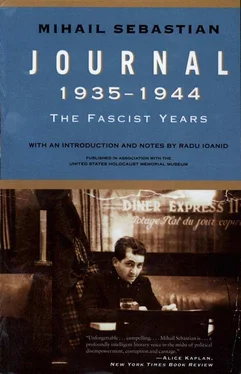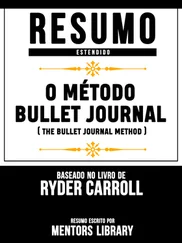A funny incident. In a pastry shop I met a Greek doctor (I don’t remember his name) whose acquaintance I made in Paris in 1930. Since then we have greeted each other whenever we meet.
“I’m glad you’ve developed,” he said to me.
“How have I developed?”
“I heard you’re no longer on the Right.”
“Me? On the Right? When have I ever been on the Right?”
“Well, that’s how I thought of you in Paris. Weren’t you with Action Française?” 2
I wasn’t sure whether to laugh, to protest, or to hold my peace. What could I say? How on earth did I come to be thought of as “Action Française ”? From where, for God’s sake?
How difficult it is to communicate with people. All kinds of images and ideas are spread about you. You don’t know where they come from, how they were born, what they are based on. You don’t even know what they are. Meanwhile your real life is like an island.
Why haven’t I written here for so long? I don’t know. I can give several explanations, but none of them is sufficient.
I still live with a sense that everything is provisional. Since the 26th of August I have remained a war victim. I still have no home; I am still “installed” somewhere. In theory I am looking for somewhere. In practice I stay at the Mehedint home as if I were at a hotel where I have put up for the night.
I work — but with the same sense that what I do is suspended in the air— and I postpone things to which I really should turn my mind.
I have made a play from Nuits sans lune. I have translated Anna Christie. Now I am translating The Taming of the Shrew. I keep telling myself that I must finish it quickly — as if only then will I begin my main activity.
I haven’t lost the wish to write my war book. I promise to do it as soon as I am rid of my theatrical chores. Meanwhile I translate, translate, and translate.
Let’s be fair. The theatre does give me some money, for the time being. Otherwise how could I pay the rent or the daily household expenses?
I have no “position.” I have refused in turn: 1) to rejoin the Foundation, 2) to resume my post at the college, 3) to become the confiscation administrator of a German company, 4) to work as an editor for the Radio, and 5) to join Branişte’s Jumalul.
It’s hard to live on refusals.
What will I do in January or February, when my income from the theatre dries up?
It was a dramatic decision on my part not to go to work at Branişte’s Jumalul. It cost me a sleepless night and a couple of days of worry.
I am fond of the man. I wrote him a long letter in which I tried to explain why I was neither able nor willing to work on the paper. Then I had a long chat with him, in which I was on the point of crumbling. Mais j’ai tenu bon. 3
Even at the risk of upsetting Vişoianu, even at the risk of somehow quarreling with Branişte, I no longer want to do journalism.
Vişoianu, Pătrăşcanu, Belu, Rosetti tell me that I will almost certainly be appointed a “press adviser.” 4I don’t know; I have my doubts. Nor do I even realize what such a function would actually mean. “Press adviser” in Romania means a kind of pencil pusher. And I don’t know how much chance there is of my doing it abroad (which has always been my dream); and it is unlikely to happen for a long long time.
What if I were to drop everything (press, literature, theatre) and concentrate on advocacy? That idea comes back to me whenever my disgust with work as a “publicist,” in any form, starts to suffocate me. This morning I spent ten minutes or so at Siegfried’s exhibition. Lemnaru, Comarnescu, Musatescu, and Argintescu were there! They spoke about all kinds of things behind the scenes at the editorial office. Grotesque Balkan affairs. A world that doesn’t even amuse me. No, no, I need something completely and utterly different.
It was a big mistake to take on the translation of The Taming of the Shrew. A big mistake. Something like that should be done over six months, and I have to have it ready in a few more weeks. I have been working at it for a month now, and am still only halfway through. Whatever happens, I must do the rest more quickly.
Besides, I am unable to work with Leni and Froda. I swear this will be my last theatrical experience with them. My very last. Everything irritates me. Scarlat’s superior airs as a “man of the theatre.” The “objectivity” with which Leni agrees with him on every matter. The fact that Jenica (who is playing a commonsense character, a “voice from the crowd”) always votes with them. They seem to be saying: you see, there are three of us and only one of you; if we all three say the same, why do you remain so stubborn?
And then there is §ahighian, stupid, obtuse, and superior. Were it not for Leni, I’d long since have flung the translation into their faces and run off.
Things are now becoming complicated because of money.
I made the childish (and I admit, inexcusable) mistake of not specifying terms from the start. There is no way I would have agreed to work without a 6 percent royalty. But this seemed such a normal expectation that I was sure there would be no difficulty. Yesterday I talked to Froda. At the last moment — again my absurd helplessness in money matters— I was so cowardly that I said not 6 percent but 5 percent. He took fright; he literally took fright. A second earlier, in my presence, he had laid into some program agents and imposed on them very tight financial conditions. And now, when I asked him for money, he took fright.
Leni called me this morning so that we could talk it over between the two of us. The theatre is going through difficulties, production is expensive, the budget is large; she appeals to me, etc., etc. I resisted. The only thing I would now gladly do is drop the whole business. I’d have worked a month for nothing — that’s all. At least I’d become a free man; I’d be able to breathe, to rest, to tie up the whole situation. But the ridiculous thing is that I would then look like a lâcheur. 5 They argue that I did not specify terms at the outset — a kind of moral blackmail they can use against me. But I am determined not to give in. Either 5 percent or nothing. Yes, I’d prefer to give them the translation for nothing. All I’d ask then would be that my name does not appear anywhere.
That’s a sucker’s solution, of course. A naive form of revenge. But at least I’d be calm and at peace with myself.
A short epilogue to the Taming of the Shrew affair. I translate, translate, and translate, and for the last three days, without saying a word to me, they have been rehearsing something else at the theatre.
I heard about it quite by chance, on the phone from Mme. Zissu. The whole town knew — only I didn’t. There’s no longer any question of Shakespeare. Not only did they not take the trouble to inform me, but on Friday evening, with the new premiere already arranged, Leni did not say a word about it when she rang and asked me to speed up the translation. She can lie awfully well.
I am so disgusted that I don’t even feel bad about it.
I have wasted six weeks of work, and I feel as if I have been on compulsory labor service.
The only odd thing is that they didn’t tell me, so that I could have stopped working on it. I feel cuckolded — and no doubt that is how everyone sees me and laughs at me in the theatre.
I spent the afternoon with Captain Larry Bachman, from the U.S. Army. He flies to Italy tomorrow morning, and from there on to China. He has been fighting until this year in the Pacific.
Читать дальше











